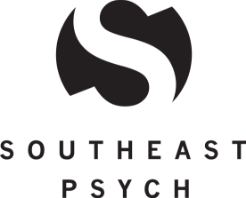Life can be unpredictable, and emotions can sometimes feel overwhelming. Whether it’s feeling anxious in social situations, struggling with negative emotions, or reacting impulsively to stress, many people find it challenging to navigate their inner world. That’s where Dialectical Behavior Therapy (DBT) comes in—a structured, evidence-based approach designed to help individuals improve emotional regulation, build healthy coping mechanisms, develop healthy relationships, and create a life worth living.
If you’ve ever felt like your emotions control you instead of the other way around, you’re not alone. Learning how to manage emotions effectively is a skill, and with DBT skills training, you can take charge of your emotional well-being and build a more balanced, fulfilling life.
What is Dialectical Behavior Therapy (DBT)?
Dialectical Behavior Therapy (DBT) is a type of cognitive behavioral therapy originally developed to treat personality disorders such as Borderline Personality Disorder (BPD). However, it has since been widely adapted to help individuals struggling with mental health challenges, and has been found to be an effective treatment approach for mental health issues such as depression, anxiety, PTSD, and impulse control issues.
DBT focuses on four core areas:
- Mindfulness – Increasing awareness of thoughts and emotions in the present moment
- Distress Tolerance – Developing strategies to cope with crisis situations and harmful behaviors
- Emotion Regulation – Learning techniques for managing emotions effectively
- Interpersonal Effectiveness – Improving communication and relationship skills
Through structured therapy sessions, DBT helps individuals replace destructive patterns with practical skills for handling life’s challenges.
The Role of DBT in Improving Emotional Regulation
Emotions play a crucial role in how we think, behave, and interact with the world. However, when emotions become too intense or difficult to control, they can lead to impulsive decisions, risky or harmful behaviors, and strained relationships. Improving emotion regulation is key to breaking free from these patterns and fostering positive emotional well-being.
1. Understanding Emotion Regulation Skills
At the heart of DBT is training in emotion regulation skills, which help individuals recognize, understand, and manage their emotions in a healthier way. Some essential DBT techniques for managing emotions include:
- Identifying Triggers: Understanding what situations, thoughts, or memories lead to emotional distress
- Labeling Emotions Accurately: Recognizing the difference between frustration and anger, or sadness and disappointment, can help with processing emotions
- Reducing Vulnerability: Taking care of physical health, getting enough sleep, and engaging in self-care to strengthen emotional resilience
- Building Positive Experiences: Actively creating joyful moments to counteract distress
By integrating these skills into daily life, individuals can shift from reacting impulsively to responding with awareness and intention.
2. Practicing Mindfulness to Stay Present
Practicing mindfulness is a fundamental component of DBT that helps individuals become more aware of their thoughts and feelings without judgment. Many people who struggle with emotional regulation get caught up in thoughts and feelings associated with past regrets or future anxieties, which then fuels distress. Mindfulness teaches a person to:
- Stay in the present moment instead of dwelling on past mistakes
- Observe emotions without immediately reacting to them
- Accept feelings as they come and go, rather than suppressing them
By incorporating mindfulness exercises, such as deep breathing, body scans, or grounding techniques, individuals can reduce stress and improve their overall emotional well-being.
3. Building Distress Tolerance for Long-Term Growth
Life will always bring challenges, but how we respond to them makes all the difference. Distress tolerance is a key skill in DBT that helps individuals manage intense emotions without resorting to harmful behaviors like self-harm, substance abuse, or explosive outbursts.
Some effective distress tolerance strategies include:
- TIPP (Temperature, Intense Exercise, Paced Breathing, Progressive Relaxation): Quick techniques to calm the nervous system during emotional distress
- Self-Soothing: Engaging in comforting activities that appeal to the senses (warm bath, calming music, scented candles)
- Radical Acceptance: Letting go of resistance to situations that cannot be changed
By strengthening distress tolerance, individuals gain the ability to experience difficult moments without being overwhelmed by them.
4. Strengthening Relationships Through Interpersonal Effectiveness
Emotional regulation isn’t just about handling internal emotions—it also affects interactions with others. Many people who struggle with emotional regulation also find relationships challenging. DBT teaches interpersonal effectiveness skills. These skills help individuals:
- Express their needs clearly and assertively
- Set and maintain healthy boundaries
- Improve open communication with friends, family, and partners
- Navigate conflicts without escalating emotional reactions
These skills lead to healthier, more fulfilling relationships and reduce misunderstandings that often contribute to emotional distress.
Tracking Progress with a DBT Diary Card
One of the most useful tools in DBT is the diary card, which allows individuals to track their emotions, behaviors, and use of DBT skills over time. Keeping a diary card can help identify patterns, recognize progress, and pinpoint areas for improvement.
Therapists often use diary cards in therapy sessions to guide discussions and refine strategies for better emotion regulation. This structured approach provides a tangible way to see growth and build confidence in handling emotions effectively.
The Long-Term Benefits of DBT
The beauty of DBT is that it’s not just about short-term relief—it’s about building long-term resilience and creating a life worth living. By consistently practicing DBT skills, individuals experience:
- Increased self-awareness and self-control
- Reduced intensity and duration of emotional distress
- Better relationships and improved communication
- A greater sense of peace and balance in daily life
Healing and growth take time, but DBT provides a roadmap for lasting change.
Find DBT Therapy in Charlotte
If you’re ready to take control of your emotions and develop healthier coping strategies, Dialectical Behavior Therapy (DBT) can help. At Southeast Psych, we offer DBT skills training and personalized therapy sessions to support individuals in their journey toward emotional well-being.
We proudly serve individuals in Charlotte, helping them gain the tools they need to create a more balanced, fulfilling life.
